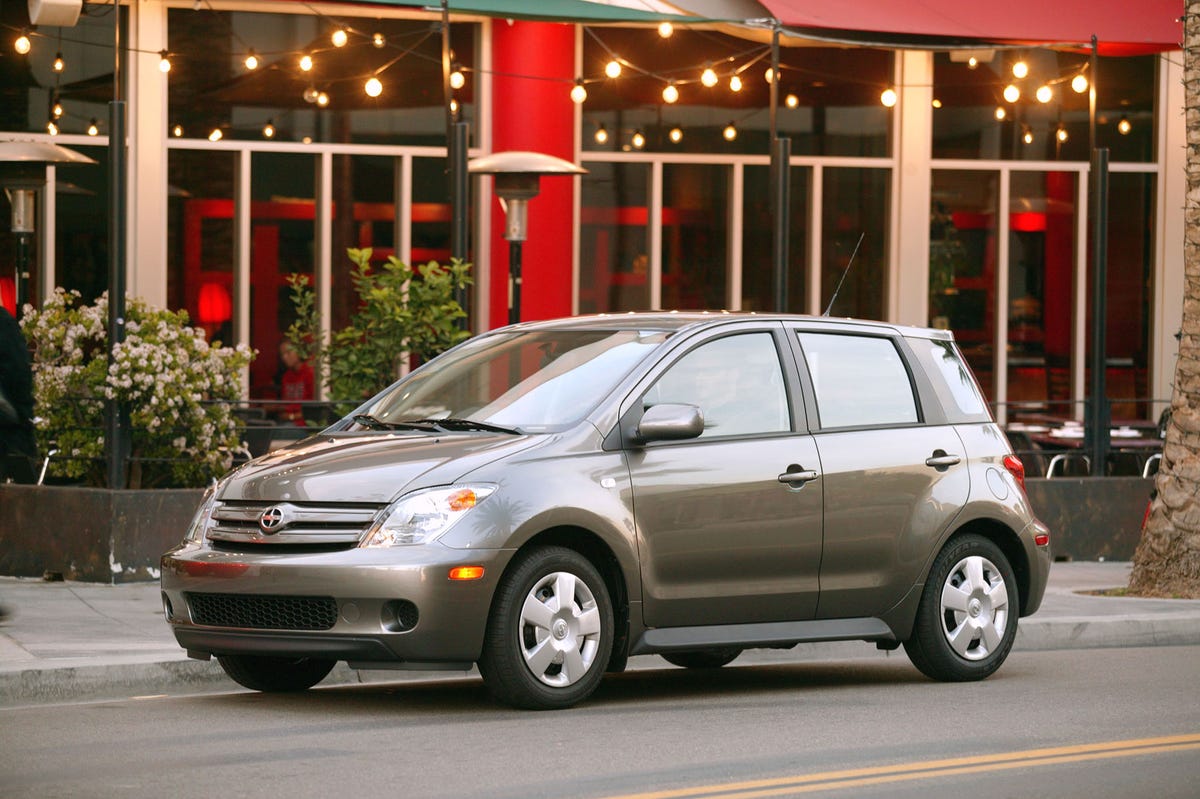Looking back at Scion's history of building quirky cars (pictures)
Now that Toyota decided to kill off Scion and absorb its vehicles under the Toyota name, it's time to take a look back at 13 years of some rather quirky cars.

2004 Scion xA
The Scion xA was one of the automaker's initial models, based on the Japanese-spec Toyota ist.
2004 Scion xA
With Scion's initial push for value came some frankly cheap-looking interiors. The iA was powered by a 108-horsepower, four-cylinder engine, achieving 38 mpg highway.
2004 Scion xB
Toyota's Japanese-market bB became the Scion xB, a car unique for its eminently capacious interior despite its small footprint.
2004 Scion xB
The funky little xB was available with the same 108-horsepower engine as the xA. The bB's column shifter moved to the floor for the American-spec xB.
2006 Scion xA
In 2006, the xA received a mild refresh, including new bumpers and side skirts, side-mirror-mounted turn signal indicators and wheel-mounted audio controls.
2006 Scion xA
The xA was also the first vehicle to offer an optional iPod input.
2006 Scion tC
Scion expanded its lineup from two to three in 2005 with the introduction of the tC, a car intended to make the brand a bit sportier.
2006 Scion tC
The tC packed 161 horsepower from its four-cylinder engine, a big boost over the xA and xB. Standard equipment abounded, including air conditioning, power windows, a 160-watt stereo and a panoramic moonroof.
2008 Scion tC
In 2008, the tC was given a very mild refresh consisting of a new grille, and new headlights and taillights.
2008 Scion xD
The Scion xD came about in the 2008 model year as a replacement for the aging xA.
2008 Scion xD
Power output was bumped up to 128 hp, with highway fuel economy down to approximately 33 mpg highway. Like the xA, it was available with either a manual or automatic transmission.
2008 Scion xB
The same year the xD came out, Scion also unveiled a second-generation xB. Having lost some of the quirky-box flair that made the first generation a hit, the xB was larger and aimed solely at the American market. Sales plummeted, much to the company's chagrin.
2011 Scion tC
The 2011 tC marked the beginning of the coupe's second generation. Performance was up, and much of the first-gen tC's styling cues remained, including its flat roof design.
2011 Scion tC
The tC continued to be a hit with the aftermarket, with a variety of upgrades available from both TRD (Toyota Racing Development) and third-party companies.
2011 Scion tC
The tC's newfound power came by way of a new engine, a 180-horsepower four-cylinder borrowed from the Toyota Camry.
2012 Scion iQ
The Scion iQ is a rebadged version of the Toyota iQ, a diminutive city car meant to maximize interior volume while minimizing...well, just about everything else.
2012 Scion iQ
The iQ was powered by a 94-horsepower, four-cylinder engine. In Europe, a rebadged version was marketed as the Aston Martin Cygnet -- no, we're not joking. This was also an Aston Martin.
Scion iQ EV
Toyota also developed an all-electric variant, the iQ EV. It was largely limited to two markets -- the US and Japan -- as fleet vehicles. In the US, the lion's share of iQ EVs went to early car-sharing programs in California.
2013 Scion FR-S
The Scion FR-S was the brand's first genuine sports car, packing a flat-four engine and a rear-wheel drivetrain. It was marketed in Japan as the Toyota 86 -- the Scion name only extended to the US and Canadian markets.
2013 Scion FR-S
Critics immediately fell in love with the FR-S' fun factor, bringing solid driving dynamics to a class of car that many thought was on the way out. It's garnered a huge following for being one of the least expensive ways to end up in a new, RWD car.
2014+ Scion tC
Scion gave the tC a big ol' refresh in 2014, updating its exterior appearance to bring it closer to the FR-S' design language. Along for the ride were upgrades like LED taillights, a sportier suspension, new headlights and a fancy new touchscreen audio system.
2016 Scion iA
Scion's next big introduction came by way of the 2016 iA, a rebadged Mazda2.
2016 Scion iA
Critics lauded the iA for its excellent handling and standard forward collision warning with autonomous braking, the latter an option not typically found standard on inexpensive machinery.
2016 Scion iM
The Scion iM, introduced alongside the iA, is a rebadged Toyota Avensis from Japan.
2016 Scion iM
It looks, feels and drives like it could be called the Toyota Corolla Hatchback, and it may very well be that, now that Scion is passing on.
Scion C-HR Concept
Officially the last car to carry a Scion badge, the C-HR concept presaged a subcompact crossover for the value-oriented brand. It will now become a Toyota.

